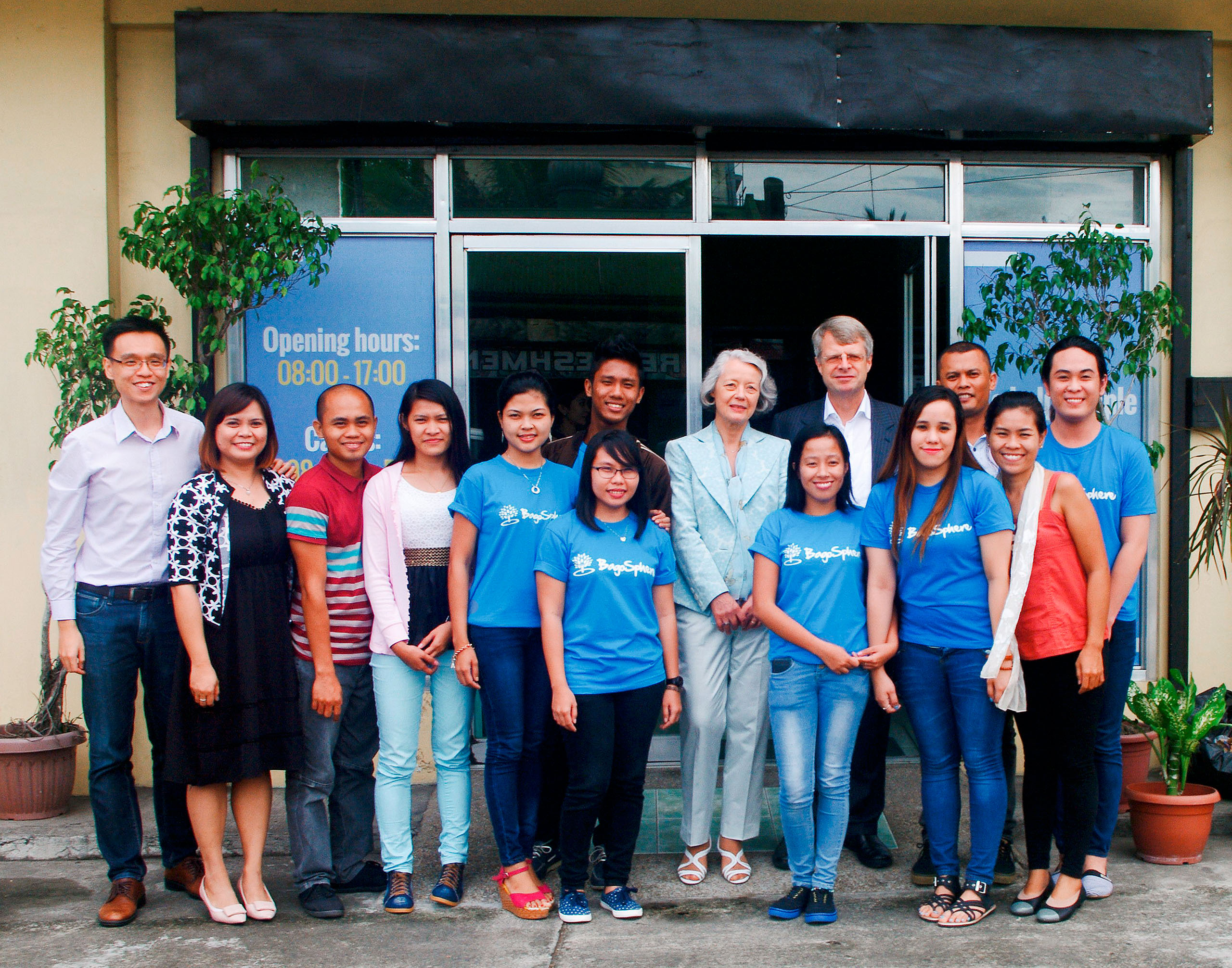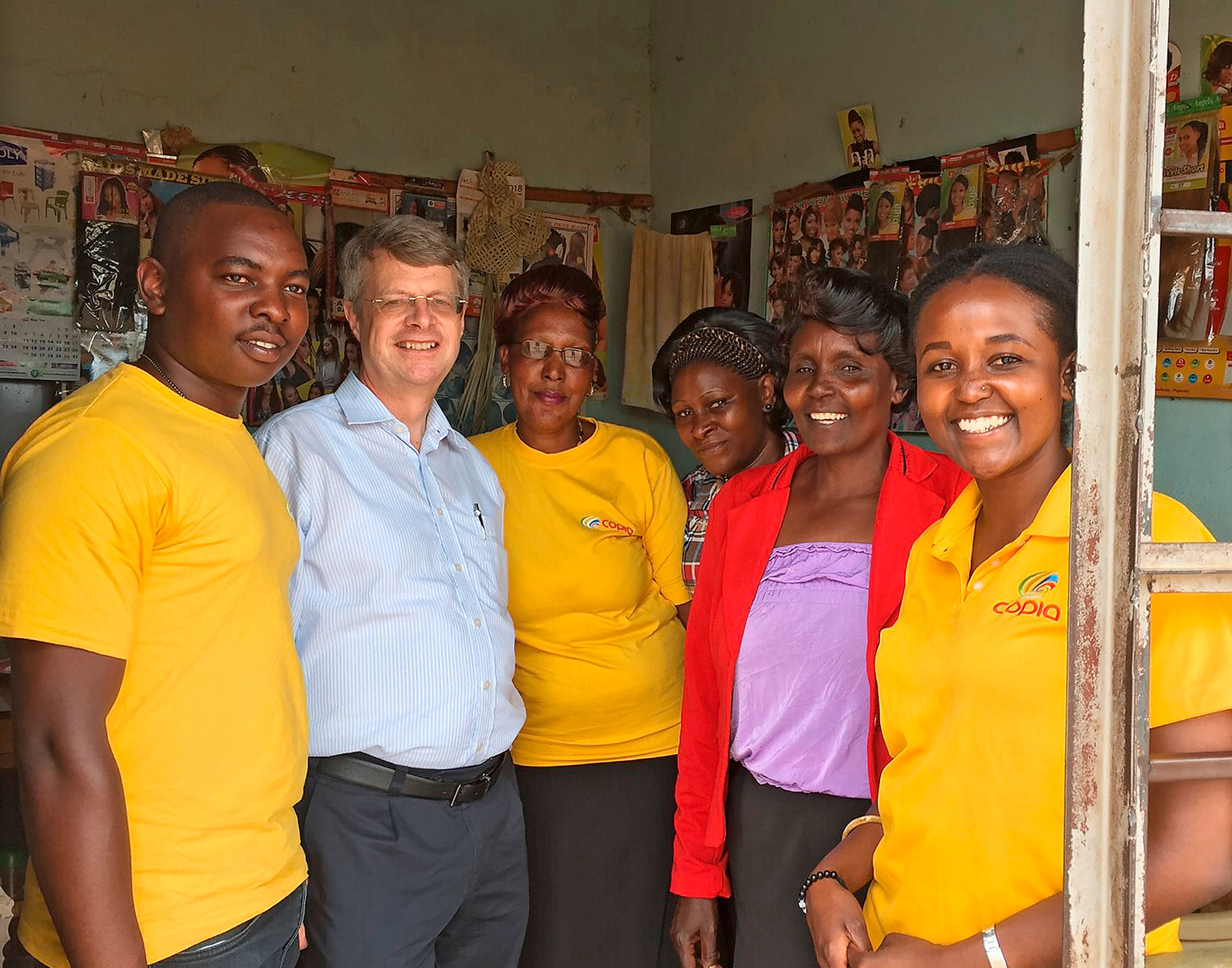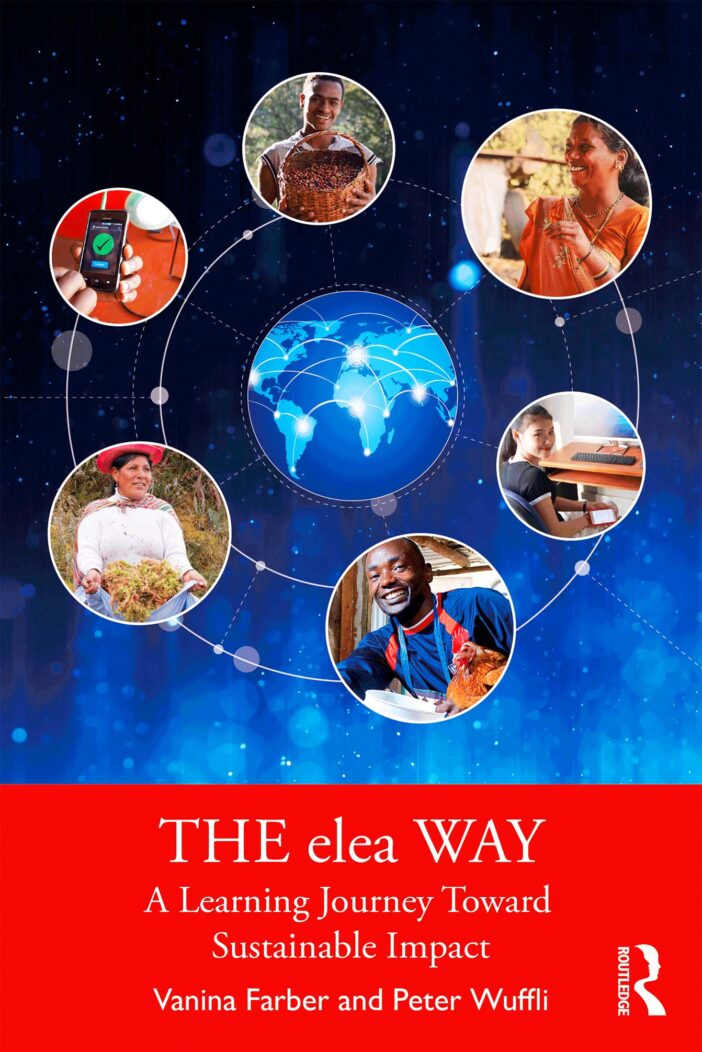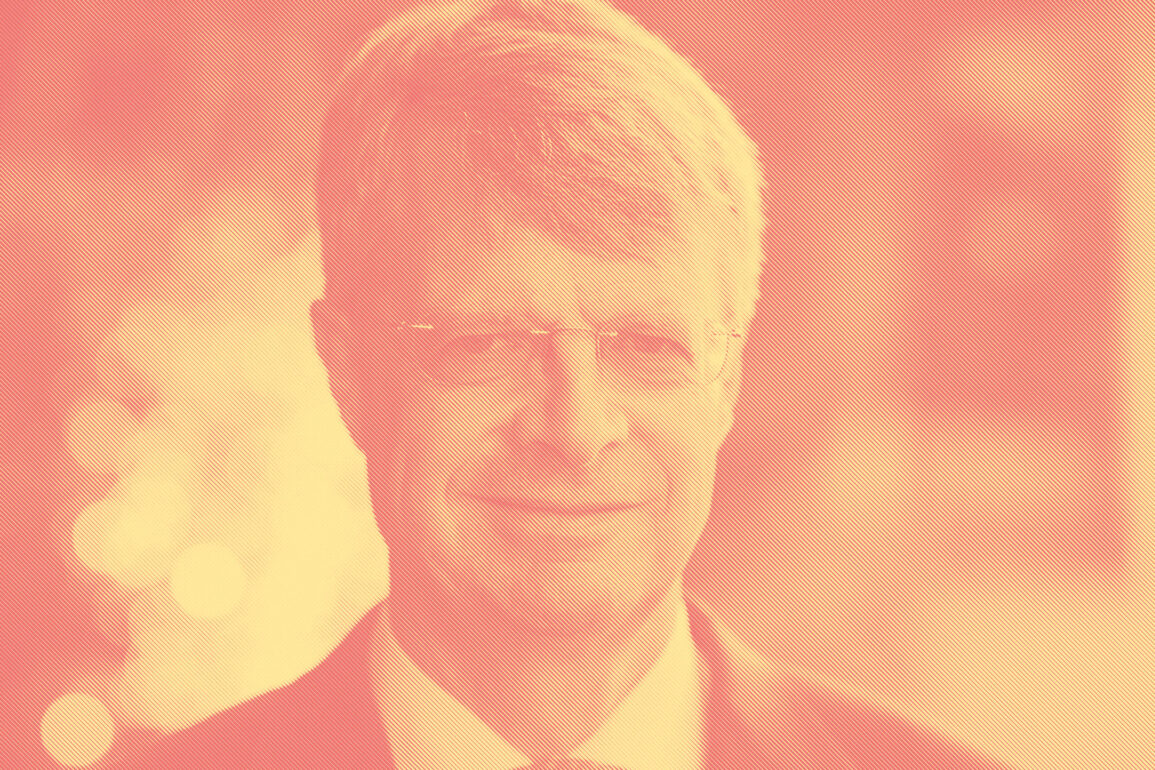Peter Wuffli and his wife Susanna Wuffli founded elea 16 years ago. The foundation supports entrepreneurial ideas and activities as an effective way to combat poverty.
‘We are particularly moved by the fact that our work significantly improves the living conditions of local people,’ says Peter Wuffli. The former UBS CEO established the elea foundation in 2006 together with his wife Susanna Wuffli. Since then, elea has been fighting poverty with entrepreneurship. The foundation wants to give people with a daily income of less than USD 3 access to the opportunities offered by globalisation. Focusing on the topics of agriculture, retail trade and professional skills, it works in countries such as Kenya, Zimbabwe, South Africa, Peru, Bolivia, India and the Philippines.
«We don’t make an investment decision until a team member has spent several days on site.»
Peter Wuffli
Fighting poverty
To illustrate how it works, Wuffli mentions a company in the Peruvian Andes in which elea holds a stake: Inka Moss. This firm sells a kind of moss that grows only at 3,000 metres above sea level and is suitable for floriculture. Inka Moss has succeeded in increasing the annual income, about USD 150, of many small-scale farmers by 50%. Thanks to this, farming families can send more children to school. For Wuffli, the projects are not just theoretical project descriptions: he knows what they are actually about. ‘I have visited the vast majority of them on site,’ he says. The foundation has engaged with 40 impact ventures since it was established, with each one carefully chosen. More than 100 ideas result in a handful of investments each year. ‘We don’t make an investment decision until a team member has spent several days on site,’ says Wuffli. Once the decision has been made, elea generally remains involved as an active investor for five to seven years and usually has a seat on the boards of directors of the partner companies. By then, if not before, the company should be generating a profit. elea tries to generate a sustainable impact in the fight against poverty, opting for long-term entrepreneurial thinking instead of project work with a limited time horizon. ‘In our work, profit and charity are not mutually exclusive – quite the opposite,’ says Wuffli. However, he knows this approach is not right for every issue. ‘Traditional philanthropy retains an important role; for example, in emergency assistance, cultural matters or scientific research,’ he says.

Susanna und Peter Wuffli mit Alumni des Bagosphere-Ausbildungsprogramms auf den Philippinen. Das Trainingsprogramm bereitet Jugendliche ohne Berufsabschluss auf den Arbeitsmarkt vor.
Liberal ethics
Questions of poverty, ethics and globalisation have been on Wuffli’s mind for a good 40 years. He studied development economics in St. Gallen and wrote his thesis on direct investment in Mexico. A successful career took him to the top of UBS at a young age, and he’s aware that this has put him in a position of great financial privilege. ‘As with many in our country, I have benefited from being born here and forging my professional career here,’ he says. Consequently, he decided to take on the responsibility of supporting those less fortunate. As a proponent of liberal ethics, he says that everyone should have the freedom to be able to shape their life. ‘Those who have more freedom, whether in the form of management responsibility, expertise or assets, should exercise a greater amount of responsibility,’ he says. Christian ethics and social issues are also a central concern of Susanne Wuffli, a lawyer. She and her husband have taken on this responsibility, putting a considerable chunk of their wealth into the foundation. However, money is just half of what elea uses to have an impact, as Wuffli explains: ‘In order for an impact enterprise to be successful in the long term, it needs both secure funding and expert support.’ This is where he sees the strengths of elea’s approach. The foundation provides financial capital and also invests in entrepreneurial knowledge and skills. Both are facilitated by donations from external philanthropic investors. Supported projects receive assistance with strategy development, organisational design and also crisis management. The model is complex, but as a rule of thumb for every franc of venture capital investment, elea also invests a franc for a venture partner’s professional support. As a philanthropic impact investor, elea thus functions as a charitable foundation. Wuffli hopes his work will fly the flag for entrepreneurial philanthropy, and he wants to inspire others to play an active role themselves. Above all, however, he wants to have an impact with elea himself – in the long term.
«We maintain a circle of philanthropic investors, currently numbering 40 individuals, foundations and companies.»
Peter Wuffli
Strong network
The foundation expands its network continuously to increase its impact. ‘We maintain a circle of philanthropic investors, currently numbering 40 individuals, foundations and companies, that we expand on an ongoing basis in order to take advantage of growth opportunities and secure our sustainability as a foundation,’ says Wuffli. Several foundations have already entrusted their capital to elea, but money is only one part of this. ‘We appreciate the meaningful dialogue,’ says Wuffli. Alongside foundations, elea has also had the support of companies such as Accenture Switzerland and Julius Bär for many years. ‘We build bridges between the world of international companies and impact enterprises in developing countries, and we offer a platform for innovative strategic partnerships and a credible, effective perception of corporate social responsibility.’ These bridges are built not only for financial purposes: Accenture staff use their specialist expertise on the ground during secondments at partner companies – a commitment from which both parties benefit. The foundation has set up the elea Entrepreneurs’ Community to ensure knowledge can also be shared among its entrepreneurs. This offers a framework where elea entrepreneurs can interact, discuss their ideas, offer support to each other and develop their skills.

Peter Wuffli besucht einen lokalen Franchisepartner von Copia, einem Impact-Unternehmen im elea-Portfolio, im ländlichen Kenia.
«We always want to stay one step ahead.»
Peter Wuffli
Measuring impact
The foundation is a pioneer in its field and if Peter Wuffli has his way that will remain the case. ‘We always want to stay one step ahead,’ he says. In order to live up to this aspiration, elea is open to other investors and partnerships. Large international conglomerates could help generate a systemic effect, and Wuffli sees technology as offering an opportunity for the future. ‘Blockchain technology could play a key role in democratising access to impact investment,’ he says. Finally, he sees the need for standards in impact measurement, which could help impact ventures to achieve a higher ranking. He believes this could mobilise more capital for projects. The most recent activity, an investment in Atec, demonstrates what the foundation strives to achieve with this money. The Australian company is active in Cambodia and Bangladesh. ‘Atec sells electric cookers via a digital instalment system, meaning that even low-income households can afford them,’ says Wuffli. The replacement of coal and wood makes cooking cheaper and safer, and also contributes to the fight against global warming. ‘Over time, precise data collection will enable income to be generated through sale of CO2 certificates,’ he says, explaining the business model. What happens when a project turns out to be a success? This is illustrated by India-based Dharma Life, in which elea invested back in 2014. Today, the impact company provides 13 million people in 40,000 villages with vital goods and services, plus useful information. In order to continue to implement effective projects against poverty, Wuffli and his family support the foundation with commitment and enthusiasm. And Susanna Wuffli also plays an active role in the foundation, as Peter Wuffli says: ‘My wife sits on the Board of Trustees, which means she’s involved in all the important decisions and shares responsibility for them.’
Book recommendation
From practice to teaching
The elea Chair for Social Innovation was created at IMD Business School in Lausanne in order to give elea’s practical work a suitable academic framework for reflection and development. This professorship, the first of its kind in Switzerland, focuses on the effects of entrepreneurial activity and market-based mechanisms to solve social problems, in line with elea’s work. Professor Vanina Farber, holder of the elea Chair for Social Innovation at IMD in Lausanne, and Peter Wuffli, have co-written a book where they call for a closer alliance between capital and entrepreneurship in the fight against absolute poverty.



